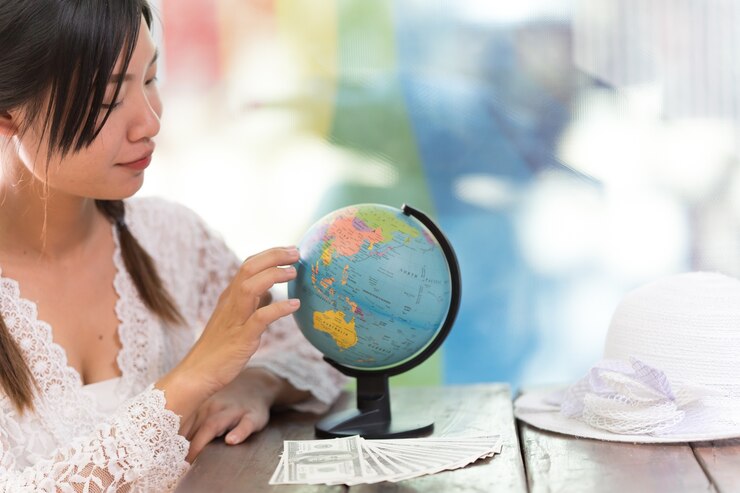Traveling is an enriching experience, offering opportunities to explore new cultures, meet people, and create lasting memories. One of the most powerful ways to make your travel experiences even more meaningful is by learning the local language. Whether you’re planning a trip to a country where the language is vastly different from your own or simply want to communicate more effectively, learning a new language can dramatically enhance your journey.
In this article, we’ll explore why learning a new language for travel is so important, how it can improve your travel experiences, and tips on how to get started.
—
## **Why Learn a New Language for Travel?**
While many destinations around the world cater to English speakers, knowing the local language offers numerous advantages that can make your travel experience more immersive and enjoyable. Here are some compelling reasons to learn a new language before you embark on your next trip:
### **1. Build Stronger Connections with Locals**
When you speak the local language, you show respect for the culture and its people. Locals appreciate travelers who make the effort to speak their language, even if it’s just a few basic phrases. This can lead to more authentic interactions and the chance to form deeper connections with the people you meet. You’ll be more likely to receive helpful tips, hidden gems, and insider recommendations from those who know the area best.
### **2. Navigate More Easily**
While many tourist attractions and public transportation systems offer signs in English, not all areas will be as accommodating. Knowing the local language helps you navigate with confidence. Whether you’re asking for directions, reading menus, or deciphering signs, understanding the language makes your travels smoother and less stressful.
### **3. Enhance Your Cultural Experience**
Language is intricately tied to culture. By learning a new language, you gain a deeper understanding of local traditions, customs, and values. You can participate more fully in cultural events, understand the nuances of local humor, and enjoy films, music, and literature in their original form. This cultural immersion will make your travel experience more enriching and authentic.
### **4. Overcome Language Barriers**
In some regions, English may not be widely spoken, especially in rural areas or non-touristy spots. Learning the local language gives you the confidence to ask questions, make reservations, or simply engage with people outside of tourist hotspots. By breaking down language barriers, you open up opportunities to explore places that many tourists miss.
### **5. Boost Your Confidence and Independence**
Traveling to a foreign country can be daunting, especially when you’re faced with a language you don’t understand. Learning a new language helps alleviate this fear. With a basic understanding of the language, you’ll feel more confident and self-reliant as you move around, interact with locals, and enjoy your trip without relying too heavily on guides or translators.
—
## **Tips for Learning a New Language for Travel**
Now that you know why learning a language is so beneficial, let’s dive into some practical tips that can help you get started, even if you’re a beginner.
### **1. Start with Basic Phrases**
When you’re learning a new language, focus on mastering essential phrases that will be useful during your travels. These might include:
– **Greetings:** “Hello,” “Goodbye,” “How are you?”
– **Polite expressions:** “Please,” “Thank you,” “Excuse me”
– **Directional phrases:** “Where is…?” “How do I get to…?”
– **Ordering food and drinks:** “I’d like to order…” “How much is this?”
– **Emergency phrases:** “Help!” “I need a doctor.”
These basic phrases will help you communicate in most everyday situations. You can always expand your vocabulary as you become more comfortable with the language.
### **2. Use Language Learning Apps**
There are plenty of language learning apps available that make it easier to pick up a new language. Some of the most popular apps include:
– **Duolingo**: A fun, gamified way to learn vocabulary, grammar, and phrases.
– **Babbel**: Offers structured lessons based on real-life scenarios.
– **Memrise**: Focuses on practical language skills and vocabulary retention.
– **HelloTalk**: A social language-learning app where you can chat with native speakers.
By practicing daily with these apps, you can gradually build your skills and improve your pronunciation.
### **3. Immerse Yourself in the Language**
The best way to learn a language is to immerse yourself in it. Listen to music, watch movies, or read books in the language you’re learning. Even if you don’t understand everything, this exposure will help you get used to the rhythm and sounds of the language.
If possible, try to interact with native speakers through language exchange programs or meetups. Speaking with real people will help you practice and gain confidence in using the language in everyday situations.
### **4. Focus on Pronunciation**
Pronunciation can be tricky in some languages, but it’s important for effective communication. When you learn new words or phrases, make sure to listen carefully to the correct pronunciation, and practice saying them out loud. Many language apps have audio features that allow you to hear the correct pronunciation from native speakers. If you’re traveling to a country with a language that uses different alphabets or writing systems (like Chinese, Arabic, or Cyrillic languages), make sure you also familiarize yourself with the script.
### **5. Be Patient and Consistent**
Learning a language takes time, so be patient with yourself. Consistency is key—practice every day, even if it’s just for 15-20 minutes. The more you practice, the more confident you’ll become. Don’t worry about making mistakes! Most locals will appreciate the effort and will be understanding as you work to improve.
—
## **Language Learning Resources for Travelers**
Aside from language learning apps, there are other resources to help you on your journey. Here are a few suggestions:
– **Language exchange websites and apps**: Websites like **Tandem** and **Speaky** connect language learners with native speakers for conversation practice.
– **Phrasebooks**: A compact and easy-to-carry phrasebook can be handy for quick reference during your travels.
– **Online courses and podcasts**: Many websites, including **Coursera** and **Udemy**, offer language courses specifically designed for travelers. Podcasts like **Coffee Break Languages** also provide bite-sized lessons.
– **YouTube channels**: There are countless YouTube channels that focus on language learning for travel. Channels like **Easy Languages** feature real-world conversations with subtitles to help improve comprehension.
—
## **Final Thoughts**
Learning a new language for travel is not just about communicating—it’s about connecting with the world in a deeper way. It opens doors to unique experiences, builds bridges between cultures, and boosts your confidence as a traveler. Whether you’re heading to a popular tourist destination or off the beaten path, learning a language can make your journey more rewarding and memorable.
So, pick a language, start practicing, and get ready to enhance your travel experiences in ways you never thought possible. The world is waiting for you to engage with it—one word at a time!
Happy travels and language learning!



